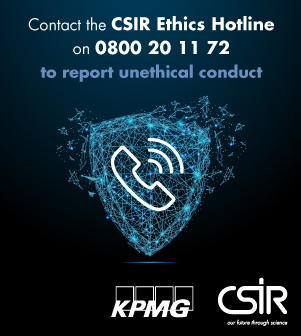News
Eastern Cape learners turned up in their thousands to attend the launch of the 2017 National Science Week (NSW) at the newly renamed Nelson Mandela University. Hosted at the institution’s Missionvale campus, about 3500 learners from schools in and around Port Elizabeth attended the annual event.
The CSIR has developed a cost-effective platform to inspect and monitor horticultural crops on local farms. This automated, intelligent robotic system has significant potential to improve the monitoring, production, harvesting and processing of produce.
The ability to forecast wind speed is becoming more important as South Africa adds renewables to its future power system. An earlier study by CSIR and German researchers quantified the combined effect of wind and solar energy resources in South Africa and concluded that it is a viable source of renewable electricity. Wind farms can be established across the country, but a successful system will need to incorporate wind speed forecasts that rely on mathematical algorithms. CSIR researchers are building local capacity in this field of mathematical modelling.
The Deputy President (DP) of South Africa, Mr Cyril Ramaphosa, visited the CSIR on Friday, 23 June 2017 in his capacity as Board chairperson of the Human Resources Development Council (HRDC). The HRDC had selected the CSIR as the venue for hosting its 18th council meeting.
The DP was accompanied by ministers and deputy ministers from various departments, as well as Mr Sizwe Nxasana, chair of the National Student Financial Aid Scheme and CSIR Board member, Prof. Mamokgethi Phakeng.
Over the past 15 years, the African Laser Centre (ALC) based at the Council for Scientific Industrial Research (CSIR) has contributed immensely to the development of young researchers in Science, Technology Engineering, Mathematics and Innovation (STEMI). With the ALC footprint in Africa, a number of young people across the continent have been positively impacted by its efforts to encourage research collaborations and skills transfer in an effort to advance science and technology in Africa.
The CSIR is using its expertise and technologies to help understand how environmental issues affect security, access to resources and development in Africa. The organisation has partnered with universities and governments across Africa, as well as the U.S. Africa Command, which is responsible for the U.S. government’s interaction with Africa on various issues, including humanitarian aid, military support and environmental needs.
The Council for Scientific and Industrial Research (CSIR) is calling on South Africans to participate in a rapid citizen science survey to source knowledge on the distribution of Nile tilapia in South African watercourses.



